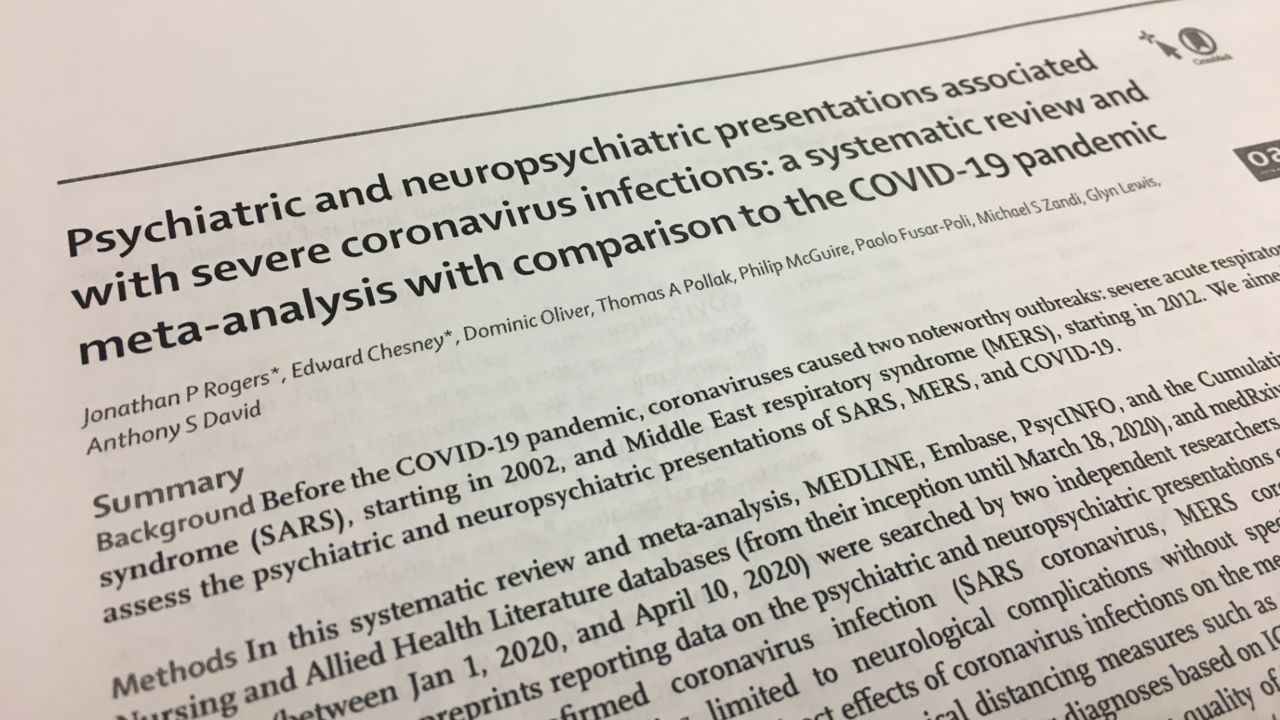PASCO COUNTY, Fla. -- What's believed to be the first systematic review and meta-analysis of the possible mental health impacts of coronavirus infections suggests that doctors be aware that depression, anxiety, and PTSD could be among the long term effect of COVID-19.
What You Need To Know
- USF's Dr. Glenn Currier helped author paper
- It suggests that depression, anxiety, PTSD could be long-term effects of COVID
- More Coronavirus headlines
University of South Florida Psychiatry Department Chair Dr. Glenn Currier studied the impact of another coronavirus, SARS, in China 10 years ago.
"We were very surprised to find the rates of things like depression and anxiety and PTSD were quite high in up to almost a third of people who were followed over a four-year period," said Currier.
Currier is one of the authors of a paper reviewed in the meta-analysis that was recently published by The Lancet Psychiatry. It looks at several studies that explore the psychiatric consequences of COVID-19 and two other coronaviruses, SARS and MERS.
"It's pretty clear that most people who have these viruses that aren't gravely ill don't have psychiatric problems later, which is a good thing. It's sort of like as the intensity of the medical burden kind of escalates, the chances of developing long-term problems also escalate," said Currier.
Currier pointed out that the process of putting together meta-analyses like this one can be a somewhat messy process. He said that the papers included in this one look at different viruses in different countries for different lengths of time. The analysis itself notes that 68 of the 72 studies examined were of low or medium quality. But Currier noted it shows 15 percent of patients who weren't gravely ill saw some mental health impact, and that doubled for those in the ICU or on ventilators.
"So, when you think of the number of people infected around the world, this has the consequence to affect a tremendous number of people.
While Currier notes mental health services in the U.S. are strained even in the best of times, he says this is something that's being watched closely.
"I think the provider community -- the doctors, the researchers -- we're on it," he said. "We're very dedicated to making sure that whatever this problem, as it ensues, whatever it looks like, we're dealing with it."
Currier said it's too early to know for sure whether the COVID-19 pandemic will play out similarly to the MERS and SARS epidemics.



